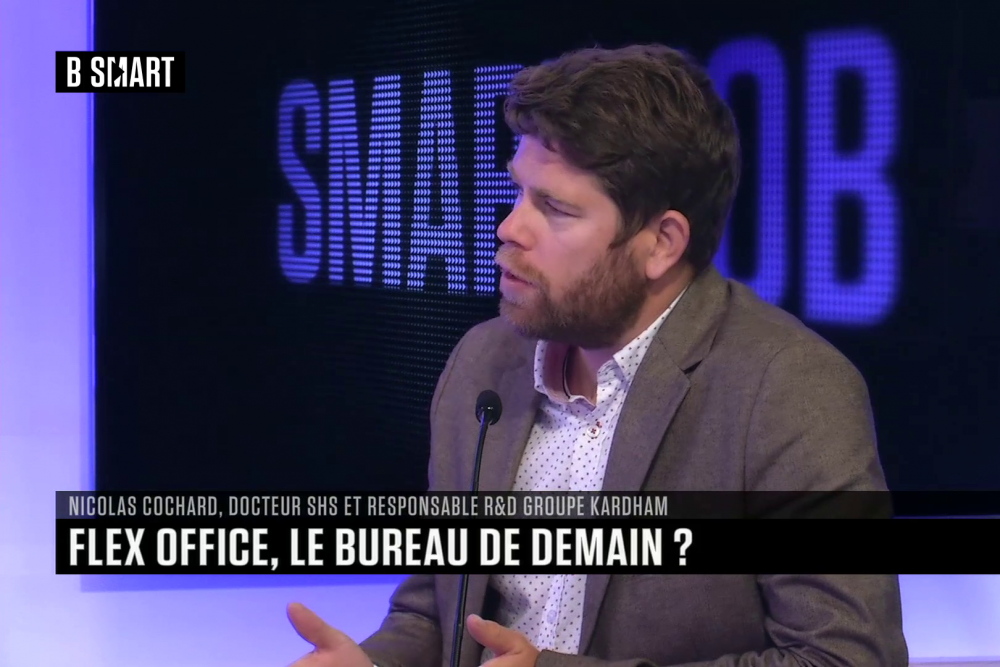- Home
- EN
- Kardham Group
- News
Flex office, the office of tomorrow? Round table at B SMART
June 2021

Nicolas Cochard spoke on Monday June 28 with Ingrid Nappi and Laurent Assouly in the Smart Job - Le Cercle RH program, hosted by Arnaud Ardoin on B SMART.
According to a study conducted by the ESSEC Workplace Management chair, only 4% of employees would agree to work in flex office in the future. The vast majority of employees want an individual office, at 63%.
Interchangeable desks are a new way of working in business, which has been accelerated in the wake of the Covid crisis. But do employees really want it? When asked, they don't like this way of working, according to Ingrid Nappi, professor at ESSEC and holder of the Workplace Management Chair. She explains: “We surveyed all types of employees: large and small companies, auto entrepreneurs, civil servants… More than 2,000 people. The idea being to see how teleworking was experienced and how, upon returning from telework, in the post-confinement office we want to work. The results are impressive: almost 79% of the responses are for having an assigned workspace, closed or in small individual or shared offices (or in open space at 16%). But only 5% in flex office. There is also a great disparity between men and women, and especially between employees and senior executives (who are ready to go into flex office). ”
Laurent Assouly, a company ethnologist, reacts to the great disparity between employees and managers, he supports: “There is a rupture which, in my opinion, is very clear. On the one hand, the executives who have accepted the flex office, who are ready to take the leap. " But for the employees, this poses a certain number of problems: especially in terms of symbol, what does it mean an employee who can no longer cling to symbols, to an office, to a border, to a space…"
Ingrid Nappi bounces on this trend concerning executives, who are not closed to the flex office: “This is a situation that has been highlighted because the office markets are very tight. The prices are outrageous. As the executives are more at the customers, why assign them an office if they are not there? ” she wonders.
Can we force employees to use a new office organization? According to Nicolas Cochard, doctor of SHS and R&D manager of the Kardham Group: “It's very complicated. Especially since the first step in setting up the flex office is the loss of something. The employees say to themselves “I am going to lose what was part of my social identity, that is to say my place. What will I win? ” He continues: “This is why the flex office, more and more, when it is deployed in an organizational and cultural dimension, and when employees have the possibility of teleworking two or three days at home, and that they identify the gain, they tell themselves that if the equation is the loss of their personal space allocated to the profit of team territory, it helps them to accept better. It works very early on. ”
Ingrid Nappi, professor at ESSEC and holder of the Workplace Management Chair, Nicolas Cochard, doctor of SHS and R&D manager of the Kardham Group and Laurent Assouly, company ethnologist are the guests of SMART JOB.
Show more
- External website : Workplace Management Chair - ESSEC Business School
- External website : B SMART TV

